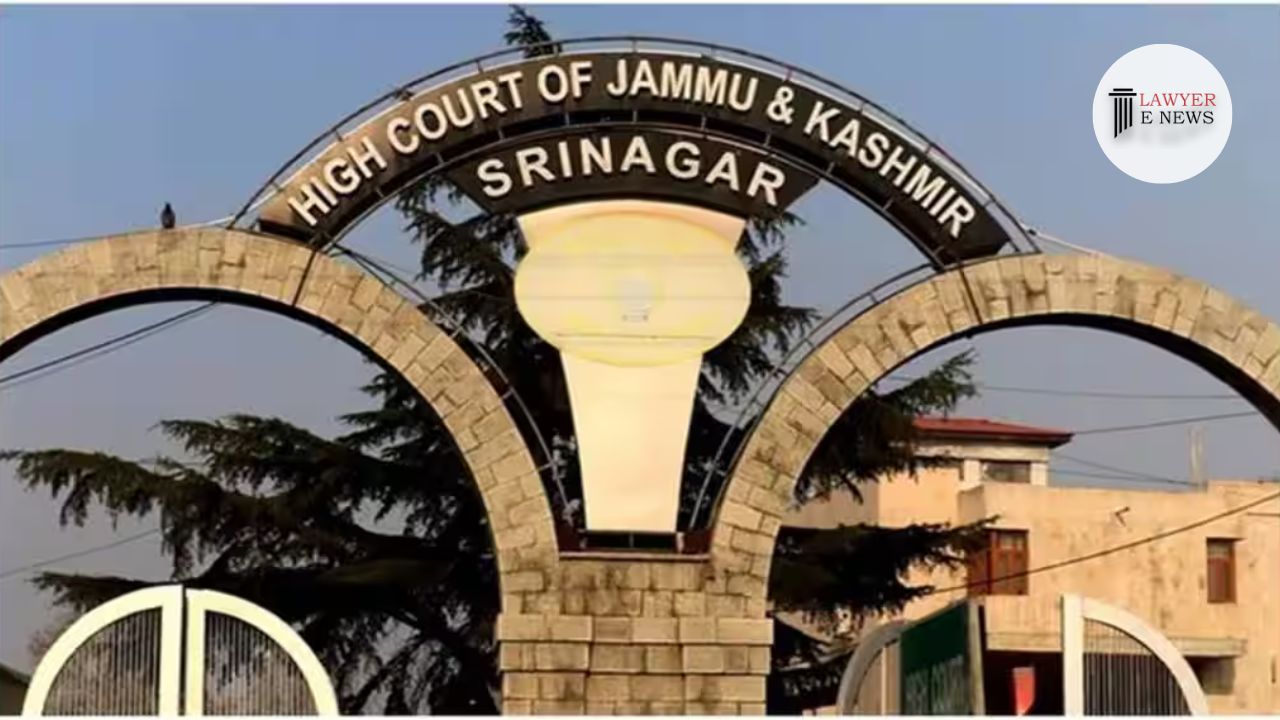-
by Admin
15 February 2026 2:36 AM



The High Court of Jammu & Kashmir and Ladakh at Jammu, led by Justice Rahul Bharti, upheld the trial and appellate courts' decisions rejecting a plaint filed by Manzoor Hussain and others, seeking a permanent prohibitory injunction against interference with their possession of certain land. The High Court emphasized that civil courts lack jurisdiction over disputes involving evacuee property, directing the appellants to seek remedy under the Jammu & Kashmir State Evacuees’ (Administration of Property) Act, Svt. 2006.
The appellants, Manzoor Hussain and others, had filed a suit seeking a decree of permanent prohibitory injunction to prevent any interference with their possession of a piece of land measuring 43 kanals and 6 marlas in village Badyal, Qazian, Tehsil Suchetgarh, district Jammu. The land in question was classified as evacuee property. The respondents included both private individuals and government officials responsible for the administration of the said land.
The trial court, under the Sub-Judge (Chief Judicial Magistrate) of Jammu, rejected the plaint based on the lack of jurisdiction, referencing the Jammu & Kashmir State Evacuees’ (Administration of Property) Act, Svt. 2006. The court held that the nature of the property as evacuee property barred the civil court from entertaining the suit.
The decision was upheld by the First Appellate Court, confirming that the civil court did not have the authority to adjudicate the matter. Consequently, the appellants filed a second appeal in the High Court.
Jurisdictional Bar: Justice Rahul Bharti examined the jurisdictional aspect under Section 31 of the Jammu & Kashmir State Evacuees’ (Administration of Property) Act, Svt. 2006. The court concluded that the civil courts are explicitly barred from hearing cases involving evacuee property. “The legislative intent of the Act is clear in restricting civil court jurisdiction over such properties,” noted Justice Bharti.
Nature of the Suit Property: The court underscored that the appellants themselves acknowledged the property as evacuee property in their plaint. This admission further solidified the trial court’s stance on the jurisdictional bar. “By their own admission, the appellants have recognized the property as evacuee, thus necessitating adherence to the specified legal framework under the Act,” the court observed.
Substantial Question of Law: The High Court revisited the substantial question of law framed during the appeal process, which pertained to the applicability of the Jammu & Kashmir Agrarian Reforms Act and the Evacuees’ Property Act. The court determined that both lower courts had rightly dismissed the suit based on the property’s status as evacuee property.
Justice Bharti articulated the legal reasoning behind the dismissal, emphasizing the special jurisdiction and procedural mandates outlined in the Jammu & Kashmir State Evacuees’ (Administration of Property) Act. “Civil suits involving evacuee property must be referred to the Custodian of Evacuees’ Property, as mandated by Section 35 of the Act,” he stated. This provision ensures that the Custodian, as the statutory caretaker, is informed of any legal proceedings affecting evacuee property.
The High Court’s decision to dismiss the second appeal reaffirms the statutory limitations imposed on civil courts regarding evacuee property disputes. This judgment reinforces the procedural integrity and jurisdictional boundaries established under the Jammu & Kashmir State Evacuees’ (Administration of Property) Act, Svt. 2006.
Justice Bharti concluded by advising the appellants to seek appropriate remedies under the relevant jurisdiction provided by the Act, ensuring their claims are adjudicated in the correct legal forum. The contempt petition associated with the case was also closed.
Date of Decision: May 14, 2024
Manzoor Hussain and Others vs. Syed Mohasin Abbas and Others
